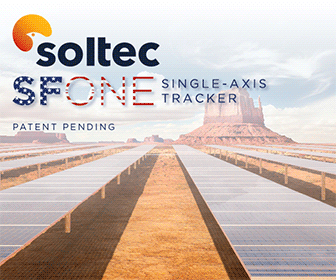Naples Zoo Teams Up with FPL to Install Solar Power Panels
The sun that can turn the Naples Zoo's unshaded parking lot into an oven is about to be put to another use.
The zoo and Florida Power & Light have teamed up as part of the company's SolarNow program to install more than 700 solar panels in the zoo lot to generate at least 200 kilowatts of power - enough to power 200 classrooms.
Added benefit: The panels will be put on top of carports that will catch the sun and also cover about 100 of the zoo's parking spaces.
Naples Zoo CEO Jack Mulvena said the solar project will not only help solve a shade shortage in the zoo lot - a common request from zoo patrons - it also dovetails with the zoo's overall mission.
"For what we're trying to do for conservation and education, it's a great partnership," Mulvena said.
FPL spokeswoman Alys Daly said the work that is to be wrapped up by November will bring a solar project into the city instead of keeping solar panels largely out of sight in rural areas or on the tops of buildings.
"A lot of people love to go to the zoo, and it's a perfect fit," Daly said.
Solar energy advocates applaud so-called community solar projects like the zoo's "in and of itself" but said the FPL program that funds such projects around the state deserves a closer look.
"The deal is really for show; it's a PR campaign that one can argue is 'green-washing,' to a degree," said Susan Glickman, Florida director for the Southern Alliance for Clean Energy.
FPL customers pay for the SolarNow program through a voluntary $9 per month contribution on their bills. Almost 21,000 customers, including 800 in Collier County, have signed up.
Glickman criticizes the program for sending the power generated by projects like the zoo's back to FPL's power grid instead of to building projects that more directly benefit the customers paying into the program.
"With the Solar Now charitable donation model, FPL gets all the benefits," Glickman wrote in an email.
Under the zoo's agreement with FPL, the power company will pay the zoo $4,000 a year to lease the parking lot; the zoo has the option to buy the power generated from its lot. Mulvena said the zoo is not invoking that option.
Daly, with FPL, said customers benefit from lower bills anytime the company can use less-expensive solar power, including through the SolarNow program.
"This is really about bringing local solar projects closer to customers," Daly said.
Beyond the SolarNow program, FPL announced last week that construction is under way on eight solar power plants in Florida with 2.5 million solar panels that will generate 600 megawatts of power starting in early 2018.
The company already runs six solar plants, including one at Babcock Ranch in Charlotte County.
Glickman, the solar energy advocate, called the solar plant expansion "great news" but said the fraction of the company's 4.9 million customers with rooftop solar is "dismal."
FPL was among the major backers of a campaign to support a constitutional amendment advertised as pro-solar but that critics said could have raised hurdles to rooftop solar.
"Consumers want true solar choice, not phony feel-good programs," Glickman wrote in an email.
Naples Daily News | www.naplesnews.com









.jpg?r=2916)
.gif?r=2982)
.jpg?r=6572)
